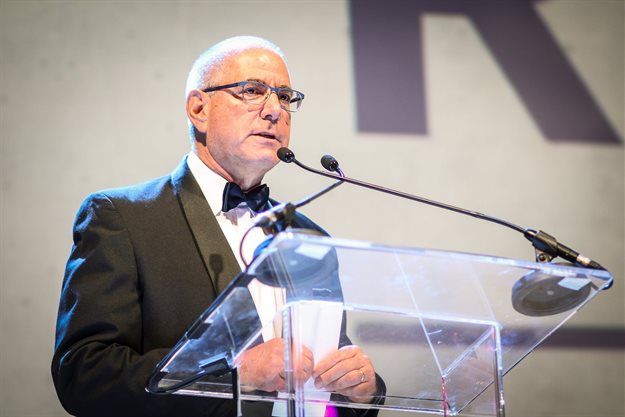
Top stories






More news
















Rothschild no longer heads up the Radio Awards, managed by Arena Events, due to the memorandum of understanding (MOU) between his company and Tiso Blackstar having terminated at the end of April 2019. It was then that he set about pursuing various other sponsors for a radio awards event. "With no remuneration and at risk, I determined to run my own radio awards programme with a view to the programme being beneficial to the industry and contributing financially to the NAB."
I asked him to tell us more about the new programme set to take place in September and why he believes it's important that radio stations uphold diversity, both in their newsrooms and on the airwaves...

‘Lalela’ is the Zulu word for ‘listen’ and the entire ethos of the radio awards programme is to promote, acknowledge and reward radio that compels people to listen. I did some research on the name and it found favour across a broad spectrum of the industry.
The programme is similar in nature to other radio awards programmes around the world, but with customised local elements.
A key differentiator will be in the way the title sponsor’s marketing and communication strategy will be leveraged through the awards programme.
There is no official partnership with the NAB, however, on initially establishing a new radio awards programme, I decided that the NAB should benefit financially from this programme, and ultimately own the awards. I attribute this to several discussions with a former colleague, who still plays an important role within a commercial station and who has always felt that the awards should collectively belong to the industry.
In the USA and in the UK, the Radio Industry Body (the RAB in this instance) runs the awards on behalf of the industry, thus making the awards an industry-wide programme, endorsed by the industry.
Securing sponsorship has been exceptionally challenging in the present market environment. Notwithstanding this, I am engaging with several organisations who are looking at this as a potential sponsorship and marketing platform.
I have successfully built the radio awards in South Africa, and logistically I have the ability to create all the systems required to run a radio awards programme (entry and adjudication).
At present, the planning is for the 2020 Lalela Radio Awards to take place in September. This allows for entries to include material that is broadcast after the typical contractual ‘musical chairs’ that takes place in April as the entry window includes material broadcast up to the end of June. The relevance of this is that the winners of the 2020 Awards will be broadcasters who actually broadcast material in 2020. Discussions with various people within the industry revealed that the end of January deadline was too pressing for people who had just returned from leave with a highly-pressured workflow. The discussions also revealed that the industry would prefer the awards later in the year as this would ensure that their line-ups were established, contracted and a reflection of their brands.
We are still in discussion with various venues and we will also take the sponsor’s requirements into account. There are several venues that would like to host the awards at this stage and we are reviewing all options.
The presentation roadshow will only take place once the sponsorship is secured and the programme is established. The roadshow will not only promote the awards but will provide insights and training to the industry – with the possible inclusion of certain industry stakeholders.
In the pre-democratic era, the government-controlled the broadcasting environment and thus controlled the messaging that the listeners received. The lack of diversity of voices and choices meant that the content was controlled and manipulated to ensure that only state-approved propaganda was disseminated.
In the democratic era, radio serves to create a broader debate and to air a diversity of opinions that better serve the listening constituency. Furthermore, the access to more information and the breadth of opinions serves to promote political accountability as listeners can hold public officials to account through a broader access to the media.
The overall standard of the South African radio industry is quite high, however, Icasa should review the frequency spectrum allocation and increase competition, particularly in the commercial radio environment. This would serve a listening audience a whole lot better and would ensure that programming and content would be more compelling and competitive. It will challenge the status quo within the industry, but the ultimate winners would be the listeners. In addition, it would create more jobs – something our economy sorely needs.
Podcasting is rapidly growing in South Africa with the number of downloads increasing substantially on a monthly basis. Whilst the bulk of the material presently being accessed is re-purposed radio material, there is substantial growth in the area of podcast-specific content being curated and created. I don’t think that podcasting will replace radio listening, but an increasingly hungry audience will seek material to satisfy their information needs through podcasting channels.
Podcasting has the potential to create many more employment opportunities in the coming period and the sector needs an awards programme to cast a spotlight on the excellent content available and to set standards for ever-improving achievement.
Follow Rothschild @Lancerza on Twitter @AwardsLalela and @LalelaRadioAwards on Facebook.
